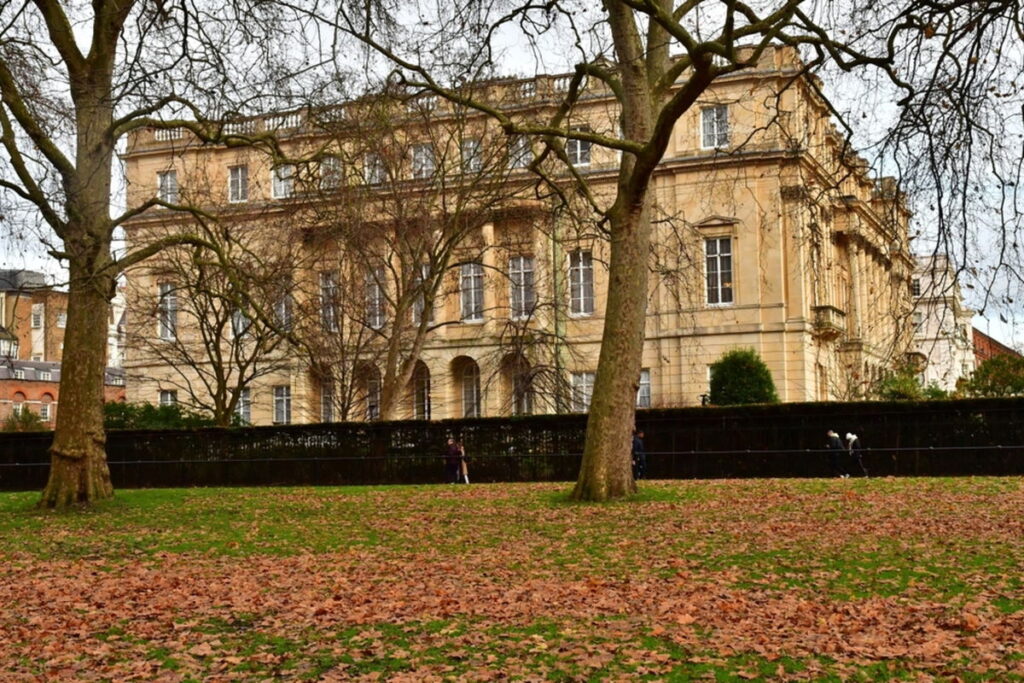
Lancaster House, where the event was held. Credit: Pack-Shot, Shutterstock
The UK government hosted a major international summit on Wednesday, June 25, aimed at ramping up private-sector investment to halt biodiversity loss by 2030.
Held at Lancaster House during London Climate Action Week, the event drew business leaders, environmental groups, and Indigenous representatives from around the world, with King Charles attending a high-profile reception.
Pushing to fund global nature recovery
The summit, titled ‘Nature Action: Mobilising Frameworks and Finance’, focused on how to meet the ambitious goals of the UN nature deal signed in Montreal, which aims to mobilise $200 billion annually by 2030 to restore ecosystems and fight nature loss.
This includes a target of $20 billion (€17.23 billion) in funding to developing countries by 2025, rising to $30 billion (€25.8 billion) by 2030.
UK Environment Secretary Steve Reed called nature “the bedrock of society” and said the UK is “ready to lead on climate and nature.”
“Nature underpins everything. Without it there is no economy, no food, no health and ultimately no society.”
Key financial commitments and business backing agreed
Several businesses and NGOs announced new investments and partnerships at the summit:
- Basecamp Research expanded its global biodiscovery network to Malawi, Hungary, and the Scripps Institution of Oceanography.
- Ginkgo Bioworks, a leading biotech firm, pledged future contributions to the Cali Fund, which promotes benefit-sharing from natural resources.
- Conservation International and Silvania revealed a collaboration to invest millions in nature-based solutions.
- Financial Sector Deepening Africa, backed by the UK, will launch a Nature Finance Innovation Lab for African-led projects.
- The Environment Bank introduced ‘Nature Shares’ – a voluntary UK investment scheme targeting woodland restoration, water quality, flood defences, and green space access.
Private investment is viewed as essential
Public funding alone won’t meet the scale of the challenge, said Ruth Davis, Special Representative for Nature.
“We must harness the potential of the private sector to drive nature restoration, super-charging opportunities for businesses to see a return on investments in a nature-positive economy.”
Echoing this urgency, Tony Juniper, Chair of Natural England, warned, “The web of life is in decline, and urgent action is needed… Growing nature is an integral part of growing the economy; if we look after nature, it will look after us.”
WWF warning
While welcoming the financial pledges, WWF-UK’s Chief Executive Tanya Steele warned that finance alone is not enough, “Without strong policies and regulations, we risk funding solutions with one hand while driving destruction with the other.”
With COP30 in Brazil looming this November, the UK is positioning itself as a global leader in ‘sustainable finance’, a pillar of its new Industrial Strategy. Read about the previous summit, COP29.
View all UK news.







